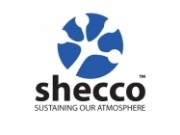In order to present the latest product and market innovations as well as efficiency results in the field of natural refrigeration (CO2, ammonia, hydrocarbons) at ATMOsphere America 2012, we are looking for case studies in the following application areas:
For the two Technology Case Study Sessions at ATMOsphere America 2012, we are looking for case studies that present the latest product innovations, project developments and efficiency results in the field of natural refrigerants in or for North America. Please find below application details:Deadline: March 15, 2012
Application areas
- Commercial & Light-Commercial Refrigeration
- Industrial Refrigeration
- Air Conditioning (Mobile & Stationary)
- Heat Pumps
- Transport
- New areas of application
Please note that it is important that the case studies present projects that are relevant for the North American market.
The focus of the case studies should be on product innovations, best practices and/or lessons learned in the field of natural refrigerants. The case study should intend to be a practical summary of an improved practice rather than a formal, rigorous research paper. If available, it should provide and analyze real life results relating to the energy efficiency and reliability of a new HVAC+R technology using one or multiple natural refrigerants.
Should you wish to provide your input in the above-mentioned fields, you are invited to send an abstract that satisfies the following criteria:
- Sustainable: The case study should address the potential of natural refrigerant technology (CO2, ammonia, hydrocarbons)
- Replicable: Lessons learned that could be applied to other projects
- Original: Technology innovations, research results that have not been shown elsewhere, new field of applications etc.
- Tangible: Examples of real life installations and demonstration projects, laboratory testing with tangible results etc.
Efficiency analysis: Analysis of how the refrigerant influences the COP, comparison of different systems or parameters, etc.
Cost analysis: Energy costs, operational costs, planning and installation costs, life-cycle costs
Result-oriented: Review of the lessons learned and suggestions on how the next installation could be managed differently
Author content and format guidelines
In your Case Study submission, please include:
1. Your full name, organisation and email address
2. Case study title
3. An Abstract
4. Keywords
5. Relevance for the North American market
6. Introduction
Required: on the last page, authors must provide a list of bulleted best practices and/or lessons learned on the topic.
Deadline for case study submission is March 15, 2012.
